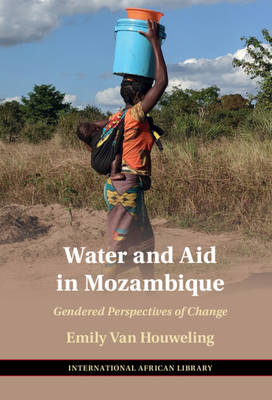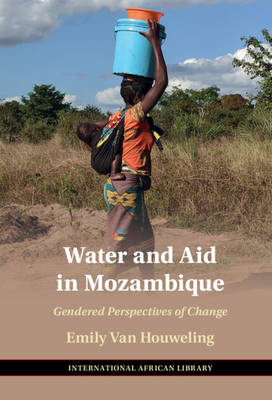
- Afhalen na 1 uur in een winkel met voorraad
- Gratis thuislevering in België vanaf € 30
- Ruim aanbod met 7 miljoen producten
- Afhalen na 1 uur in een winkel met voorraad
- Gratis thuislevering in België vanaf € 30
- Ruim aanbod met 7 miljoen producten
Zoeken
€ 152,95
+ 305 punten
Omschrijving
Analysing how water development projects unfolded in five rural communities in Mozambique, Emily Van Houweling offers an alternative perspective on water and the politicised nature of water management in the region. Using a hydro-social cycle framework, she demonstrates how water is tied to everyday life in matrilineal Nampula and how social relations, gender roles, and local politics were reconfigured during the project. While centring the experience of community members, Van Houweling also includes the perspectives of project implementers, showing how project plans were translated and negotiated as they worked their way down to the community. Employing the concept of organisational culture, Van Houweling reveals the tensions that resulted from different actors' decision-making processes and motivations, and illuminates possible explanations for the gaps between policy and practice. Exploring women's empowerment, community ownership, and participation, this book facilitates innovative ways for thinking about evaluation, sustainability, and gender-water relations.
Specificaties
Betrokkenen
- Auteur(s):
- Uitgeverij:
Inhoud
- Aantal bladzijden:
- 244
- Taal:
- Engels
- Reeks:
- Reeksnummer:
- nr. 68
Eigenschappen
- Productcode (EAN):
- 9781009193481
- Verschijningsdatum:
- 25/08/2022
- Uitvoering:
- Hardcover
- Formaat:
- Genaaid
- Afmetingen:
- 152 mm x 229 mm
- Gewicht:
- 494 g

Alleen bij Standaard Boekhandel
+ 305 punten op je klantenkaart van Standaard Boekhandel
Beoordelingen
We publiceren alleen reviews die voldoen aan de voorwaarden voor reviews. Bekijk onze voorwaarden voor reviews.








